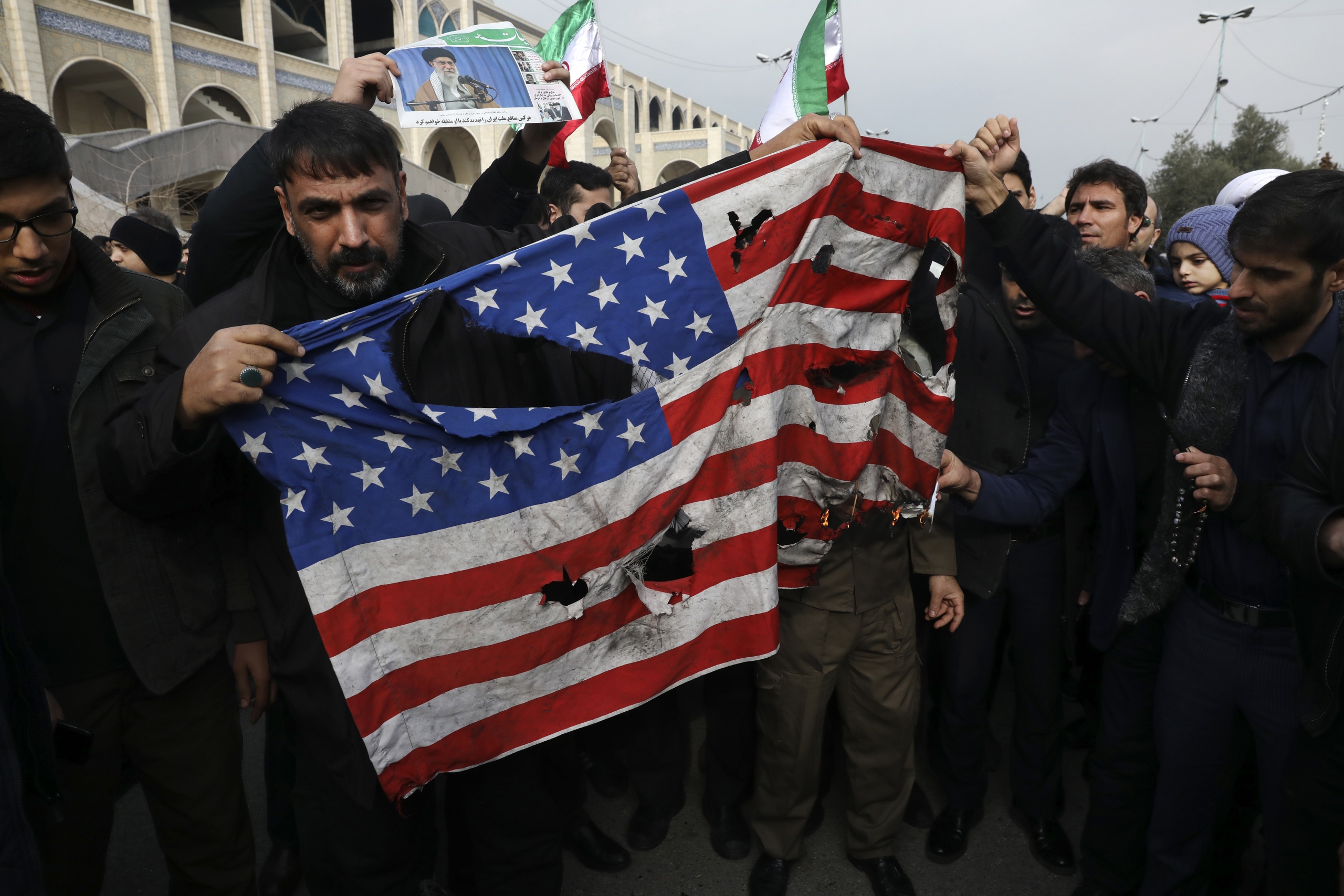Senate votes to limit Trump’s war powers in Iran

A few minutes every morning is all you need.
Stay up to date on the world's Headlines and Human Stories. It's fun, it's factual, it's fluff-free.
[spu popup="7490″] Click Here for a Quick Summary! [/spu]
On Thursday, February 13, the United States Senate approved a measure that would limit President Donald Trump’s ability to wage war with Iran. In January, Trump ordered the assassination of Iranian General Qasem Soleimani, which significantly escalated tensions between Iran and the United States.
Thursday’s approval of the measure was a rare instance in which members of his own Republican party voted against Trump. Though Congress has not officially declared war on another country since World War II, the US has consistently been involved in military conflicts for decades.
The Senate votes on measure to limit Trump’s war powers
On Thursday, the Senate voted on a war powers resolution in an effort to limit Trump’s ability to take military action against Iran. Senator Tim Kaine, who sponsored the measure, told NPR that the measure requires the president to “come and make that case [for military action] to Congress.”
The measure passed 55-45, a rare instance where the Republican-led chamber of Congress broke with the president. Eight Republicans voted for the measure, joining all 47 Democrats in the Senate. The vote came one week after the Senate voted, almost entirely along party lines, to acquit the president in his impeachment trial.
Prior to the vote, Trump said he would veto the measure if it reached his desk. As a result, the resolution would have required a two-thirds vote of approval in Congress to overrule that veto. Before it can get to Trump, though, the measure must be voted on by the US House of Representatives.
The House’s efforts to constrain Trump’s war powers
On January 30, the House approved two measures to limit Trump’s ability to pursue military action against Iran. The first measure requires Congressional approval to allocate funds towards military action in Iran.
The second measure repealed a resolution from 2002 that was approved under President George W. Bush. The Authorization for Use of Military Force Against Iraq Resolution of 2002 gave the president broad authority to use military force “to deter and prevent acts of international terrorism.” Both Presidents Barack Obama and Donald Trump have relied on that resolution to justify military actions.
The House, which is controlled by the Democrats, passed both measures largely along partisan lines, though a few Republicans did break with the president. Notably, Representative Matt Gaetz, a loyal supporter of Trump, voted for the measure, angering the president.
On January 9, the House voted on a nonbinding resolution that, similarly to the Senate’s resolution, restricted Trump’s ability to use military action in Iran. At the time, the White House dismissed the resolution, citing the 2002 resolution as support for the president’s authority to take military action.
Why would the US go to war with Iran?

On January 3, 2020, under Trump’s orders, the US assassinated Qasem Soleimani, the head of Iran’s Quds Force and a leading voice in the country’s extraterritorial military actions. The assassination came just days after an Iranian protest at the US Embassy in Baghdad on New Year’s Eve.
Iran responded to the assassination by bombing US bases in Iraq. While no US troops were killed in the attack, over a hundred have reported suffering traumatic brain injuries from the blasts.
Tensions continued after the attacks, with the leaders of both countries threatening retaliation. However, on January 8, Trump gave a televised address in which he declared, “Iran appears to be standing down.” This was taken as an effort to deescalate tensions and draw back from potential war.
This week, Iranian missiles once again struck a US base in Iraq. So far, there has been no word of US retaliation for the attacks. Even prior to the assassination of Soleimani, it wasn’t unusual for the two countries to attack and counterattack each other’s bases.
Authority to declare war
In the first article of the US Constitution, the power to declare war “and provide for the common Defence and general Welfare of the United States,” is given to Congress’s two chambers, the House and the Senate. Congress has only officially approved war with another country 11 times, but hasn’t done so since declaring war with six separate countries during World War II.
Still, Congress has authorized the deployment of troops in foreign countries throughout the 20th and 21st centuries without declaring war. For instance, war was never officially declared in Vietnam. That conflict lasted for two decades and resulted in the deaths of 2 million Vietnamese and nearly 60,000 Americans.Since the September 11, 2001 terrorist attacks, the US has been at war in at least one country without interruption. Trump has vowed to end America’s “endless wars” even as he continues to threaten the possibility of military action in Iran.
[article_ad]




Comments ()